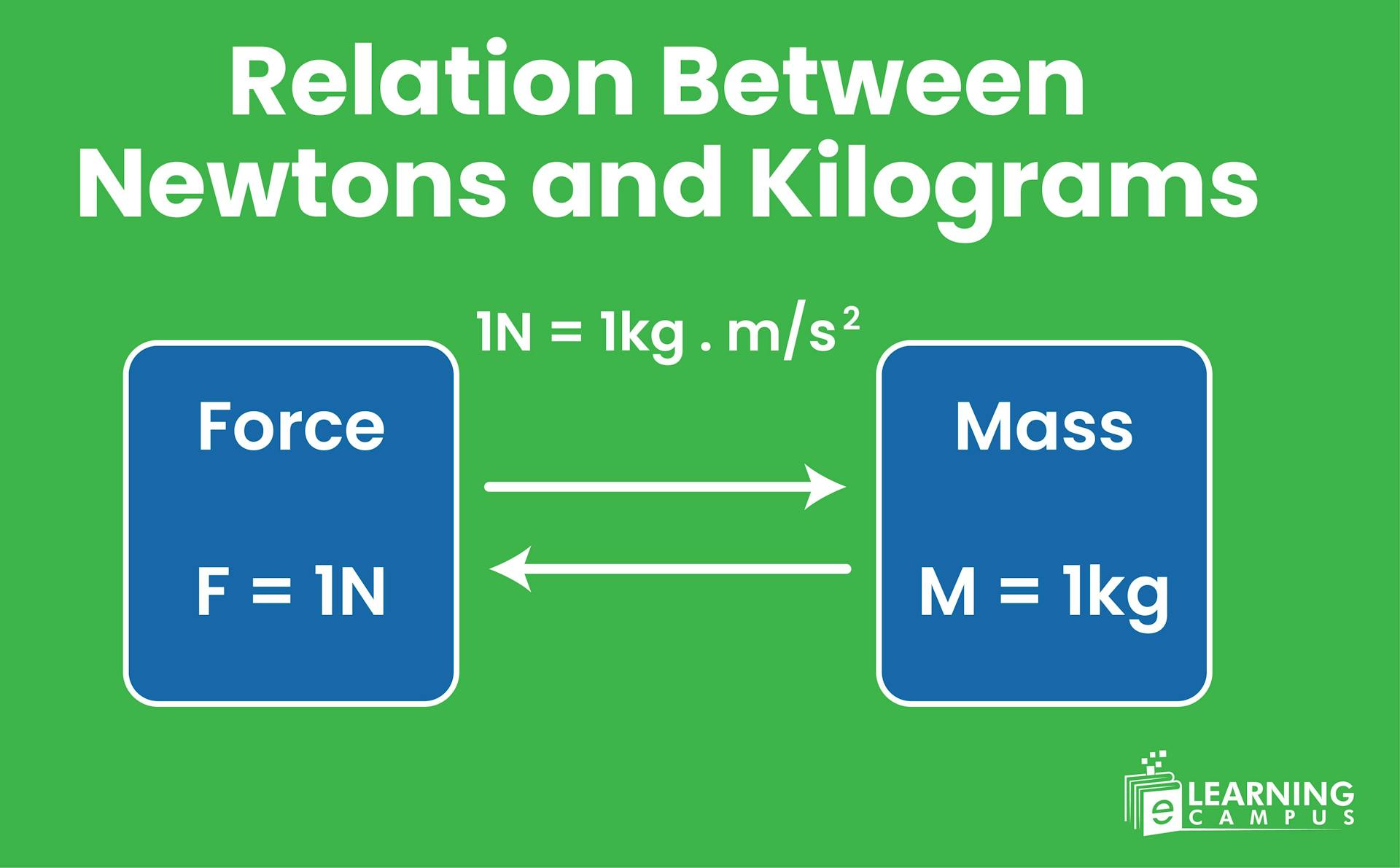The Relation Between Newtons and Kilograms


Newton and kilograms are the SI units of force and mass. There is a directly proportional relation between newtons and kilograms. It means that any change in mass (Kg) will cause a change in force (N) while acceleration remains constant. Under the gravity of the Earth, 1 kilogram of mass experiences a force of 9.81 newtons.
In this blog, you will learn about the kilogram and pounds, their mathematical relationship, and how to convert kg to newtons and vice versa.
First, we will learn about the Kilograms and Newtons
The kilogram is the basic unit of mass in the International System of Units. It is equal to one thousand grams. The kilogram is abbreviated as ‘kg’.
Newton, abbreviated as ‘N’, is the unit of measuring force in the International System of Units (SI). One newton is the amount of force required to accelerate a 1kg mass at a rate of one meter per second squared.
The relationship between kilograms (kg) and Newtons (N) is defined by Newton's second law of motion. It states that force (F) equals mass (m) times acceleration (a). Mathematically, this relationship is expressed as;
F = ma
In terms of units, it is represented as;
In which,
Thus, one Newton is a force required to accelerate a mass of one kilogram at a rate of one meter per second squared. In simpler terms, one Newton is the force needed to make a 1 kg object speed up by 1 m/s every second.
Weight is defined as the force exerted on an object due to gravity. When dealing with weight, the acceleration is due to gravity, denoted as 'g'. Its value is approximately 9.81 m/s² on Earth.
The relationship between weight, mass, and gravity is defined by the formula Weight (W) = mass (m) x gravitational acceleration (g)
Where,
So, the equation becomes;
Thus, one Newton is a force exerted on a mass of one Kilogram due to gravitational force.
Weight is the force exerted on an object due to gravity, and it is directly proportional to both the mass of the object and the gravitational field strength.
Kilograms can be converted into Newtons by using the below given equation.
To convert any value of kg, we can multiply it by 9.81.
Let’s look at some of the examples.
Example 1
Convert 10 kg to Newtons.
Using the equation.
Thus, 10 kg is equal to 98.1 N.
Example 2
Convert 80 kilograms into Newtons.
Using the equation.
Thus, 80 kg is equal to 784.8 N.
Newton can be converted to Kg by dividing the value of Newton by the gravitational force. The formula to convert Newtons to kilograms is given as;
Let’s look at the examples.
Example 1
Convert 20 N to Kg
According to the formula
Substituting the value in the formula
Thus, 20 Newton is equal to 2.04 kg.
Example 2
Convert 100 Newtons to Kg
We will use the formula.
Substitute the values in the formula.
So, 100 N is equal to 10.204 kg.
In the International System of Units (SI), a Newton (N) is the unit of force, while a kilogram (kg) is the unit of mass. The relationship between them is defined by Newton's second law of motion. One Kg is equal to 9.81 Newtons, and one Newton is equal to 0.10197 kg.
Are you struggling with science? Don’t worry. We can help you learn science online on your own schedule. We have expert online tutors to make science easy for you. You will get help for test and exam preparation.
